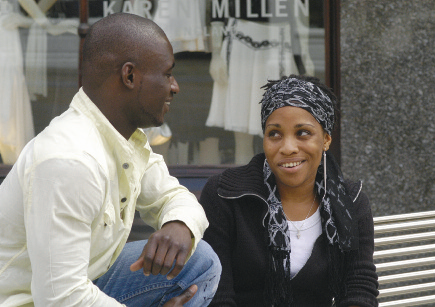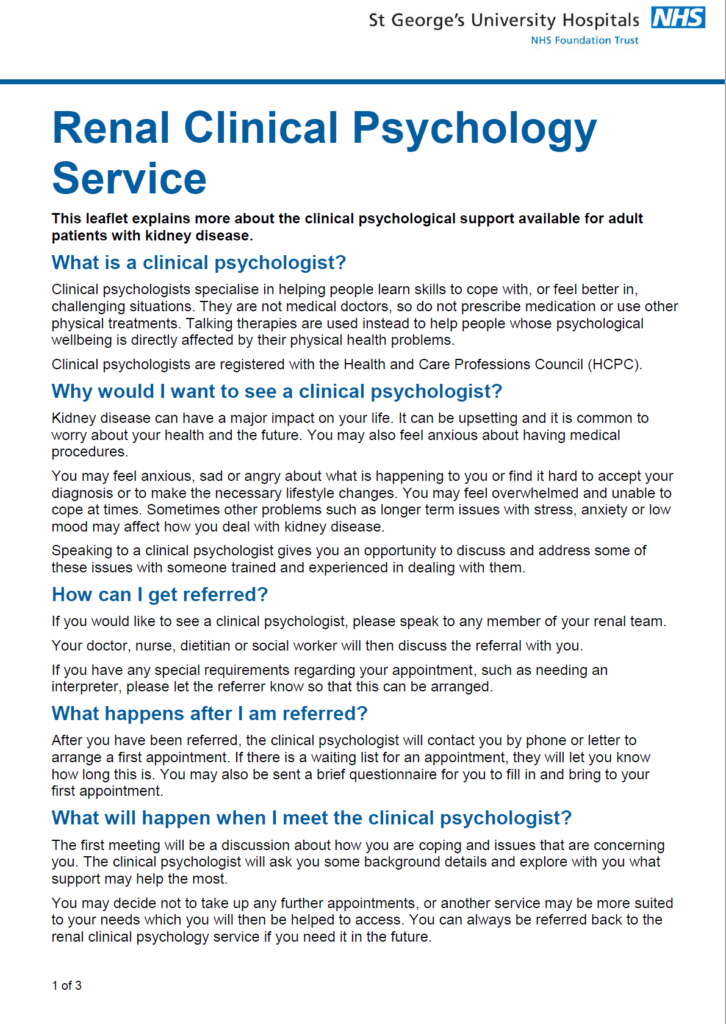Common feelings in renal patients

Over the course of your kidney disease, you may feel different emotions or a change in how you see yourself. This is quite normal for most people who are facing a long-term medical condition for the first time in their lives, and can affect their family members and carers. Making a decision about treatment options can also be challenging.
Grief – You might experience a period of grief, similar to losing someone special, your previous lifestyle or independence, or a change in work or leisure activities. If you feel this way, you may find that you gain more control and feel less sad by learning more about CKD.
Denial – Patients sometimes find that denial helps them to cope with their diagnosis as they slowly come to terms with the condition and its impact on their lives. However, if you find you are not taking medication or missing dialysis appointments, you may need to seek support by seeing a counsellor or psychologist.
Guilt – You might feel guilty about having a long-term condition and its impact on others. Many patients feel like this at different times over the course of their treatment. This is normal, and feelings of guilt may be addressed by seeking assistance from a counsellor or psychologist.
Anger – You might feel angry about having CKD and how it affects your lifestyle, perhaps because you feel you have no control of the situation. By reading this booklet you are taking control and learning more about your condition. Feelings of anger may reduce as you gain more control over your health and the treatment.
Depression – You might feel depressed. This may feel similar to grief but the signs include: problems with concentration and memory; feeling exhausted, restless or irritable; sleeping and eating too much or too little; lack of interest in things you normally enjoy. Depression can be treated with the help of a trained mental health professional.
Anxiety – People with chronic kidney disease may feel anxious. You may feel tense, uncertain and frightened, perhaps because you are being asked to make a decision about a treatment which will affect how you live your life. You may also feel anxious about other things in your life, such as your work or your family, and changes in your lifestyle. If you are experiencing any of these emotions, it is important to talk to someone about them. Your healthcare team are happy to talk to you about any concerns or feelings you have. You can also talk to a counsellor or psychologist. You might find it helps to write down a couple of questions and bring them along when you next come to hospital. No matter how trivial you think your question is, members of the healthcare team have experience with a wide range of issues and are always happy to advise you.
What support is available?
St George’s offers counselling and psychological support to patients and their relatives. You can ask a nurse or doctor to refer you to the counsellor/psychologist. Your GP may also have a psychologist or counsellor in their practice or they can refer you to Improving Access to Psychological Therapies (IAPT) which is an NHS programme that offers psychological support for people with depression and anxiety. St George’s also offers peer support which is support from another kidney patient. Peer support aims to provide practical, emotional and social support for people with kidney disease and their families. It gives you the chance to talk to an experienced kidney patient on a one-to-one basis. Relatives and carers can also talk to other relatives and carers of people with CKD. Ask a doctor or nurse for more information.





